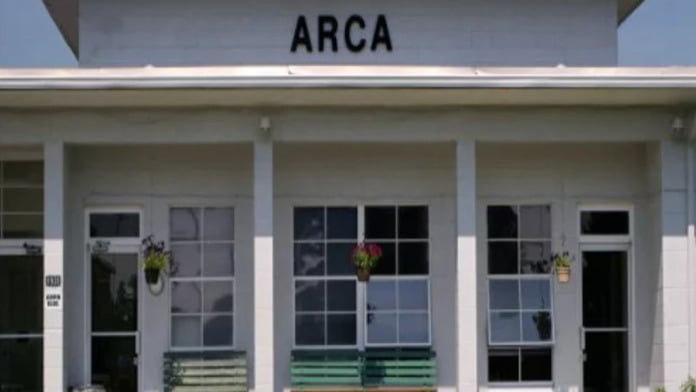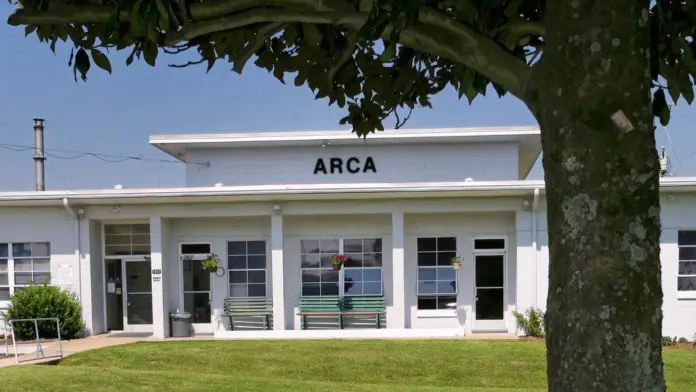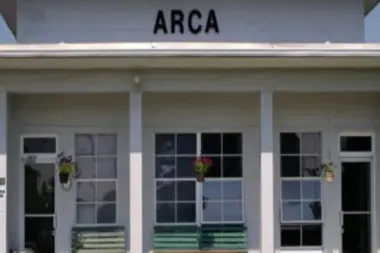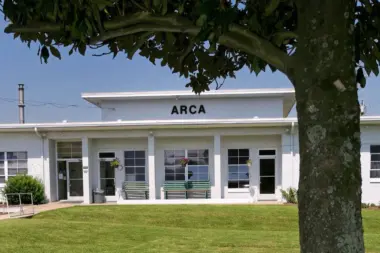If you have any serious issue don't go here!!!! They are not qualified to provide clinical treatment. And you get what you pay for, the hygiene of the facility was horrible! I recommend you to go there if you can't afford anything better.
About TROSA Triad
The beauty of this program is that it is free. You don’t need any insurance. Men and women seeking lasting healing join TROSA to build essential skills for living productive and responsible lives. The facility provides a highly structured and supportive setting where healing can take place.
You don’t need a referral to join the program. You simply need to complete the 45-minute interview via phone. TROSA accepts court ordered individuals and the incarcerated as well. Once you’re admitted they’ll provide all essential daily needs. This encompasses clothing, food and personal care items. Primary healthcare services are available onsite as well.
The treatment model here emphasizes personal responsibility, building peer support networks and making consistent daily behavior changes. You’ll begin your journey with a 30 day probation period to settle into the program, connect with others and focus on your recovery.
Once your evaluation period elapses you’ll be placed in a community assignment. This is the cornerstone of this program. It helps you learn and practice new behaviors and life skills in real time. You’ll receive lessons on how to communicate, solve problems, resolve conflicts and build confidence. You’ll learn how to trust others and work with or lead a team as well. You’ll work in different departments on campus to gain job skills including social enterprises.
You can identify thoughts, feelings, and behaviors you want to change at community assignments. You can practice making those changes safely within a community of support, accountability and mentorship. It grants you a purpose and a role to fulfill as you awake every morning. Essentially community assignment mimics a successful life outside TROSA.
Outside community assignment you’ll attend therapy classes and counseling. They offer treatment groups, individual counseling and psychoeducational workshops to complement ongoing community and peer support. They incorporate evidence based techniques like cognitive behavioral therapy, motivational interviews and rational behavioral therapy among others.
Their therapy group offers classes on wellness, parenting skills development and anger management. They also offer seminars focusing on daily challenges like goal setting, stress reduction and relapse prevention. It’s not all about therapy though. They give you a chance to have fun and explore new interests in recovery. There’s a dedicated space for exercise, entertainment and creative activities. They also offer group outings and on-campus special events.
Additionally, you’ll have the opportunity to obtain your GED and earn marketable professional credentials onsite. They mandate adults without a high school diploma or GED to take an adult literacy or GED class after six months in the program. You can apply to take college courses after one year. Other residents can also take classes and earn credentials as time permits.
It’s a complete recovery package that lasts for two years. You can also choose to extend the duration after the two years have elapsed. TROSA understands that recovery is a lifelong process. And as such they offer ongoing support to help you stay in recovery, employed and crime free as you reenter the community. Services include transportation to/from work, access to low cost housing and support groups focusing on relapse prevention.
Facility Overview
Latest Reviews
Rehab Score
Gallery




Accepted Insurance
Other Forms of Payment
Private insurance refers to any kind of healthcare coverage that isn't from the state or federal government. This includes individual and family plans offered by an employer or purchased from the Insurance Marketplace. Every plan will have different requirements and out of pocket costs so be sure to get the full details before you start treatment.
Self-pay involves paying for treatment out of your own pocket. You can use savings or credit, get a personal loan, or receive help from family and friends to fund your treatment. If you don't have insurance or your insurance plan doesn't cover a specific program, self-pay can help ensure you still get the care you need.
Sliding scale payments are based on a client's income and family size. The goal is to make treatment affordable to everyone. By taking these factors into account, addiction recovery care providers help ensure that your treatment does not become a financial burden to you or your family, eliminating one barrier to care.
Addiction Treatments
Levels of Care
Drug and alcohol addiction often takes a heavy toll on one's body. Over time, a physical dependence can develop, meaning the body physiologically needs the substance to function. Detox is the process of removing drugs and/or alcohol from the body, a process that can be lethal if mismanaged. Medical detox is done by licensed medical professionals who monitor vital signs and keep you safe, healthy, and as comfortable as possible as you go through detox and withdrawal.
Residential treatment programs are those that offer housing and meals in addition to substance abuse treatment. Rehab facilities that offer residential treatment allow patients to focus solely on recovery, in an environment totally separate from their lives. Some rehab centers specialize in short-term residential treatment (a few days to a week or two), while others solely provide treatment on a long-term basis (several weeks to months). Some offer both, and tailor treatment to the patient's individual requirements.
12-step programs are addiction recovery models based on Alcoholics Anonymous (AA). A number of substance abuse programs (including some drug and alcohol rehab centers) use the 12 steps as a basis for treatment. Beginning steps involve admitting powerlessness over the addiction and creating a spiritual basis for recovery. Middle steps including making direct amends to those who've been hurt by the addiction, and the final step is to assist others in addiction recovery in the same way. 12-Step offshoots including Narcotics Anonymous (NA), Cocaine Anonymous (CA), Dual Recovery Anonymous (DRA), Sex and Love Addicts Anonymous (SLAA) and Gamblers Anonymous (GA).
Completing a drug or alcohol rehab program shouldn't spell the end of substance abuse treatment. Aftercare involves making a sustainable plan for recovery, including ongoing support. This can include sober living arrangements like halfway houses, career counseling, and setting a patient up with community programs like Alcoholics Anonymous (AA) or Narcotics Anonymous (NA).
Treatments
The goal of treatment for alcoholism is abstinence. Those with poor social support, poor motivation, or psychiatric disorders tend to relapse within a few years of treatment. For these people, success is measured by longer periods of abstinence, reduced use of alcohol, better health, and improved social functioning. Recovery and Maintenance are usually based on 12 step programs and AA meetings.
There are many types of drug rehab in North Carolina. To receive treatment for addiction, you can choose from many inpatient and outpatient programs. Often, participants start with detox and work through a full continuum of care that continues with ongoing support for long-term recovery.
Many of those suffering from addiction also suffer from mental or emotional illnesses like schizophrenia, bipolar disorder, depression, or anxiety disorders. Rehab and other substance abuse facilities treating those with a dual diagnosis or co-occurring disorder administer psychiatric treatment to address the person's mental health issue in addition to drug and alcohol rehabilitation.
Opioid rehabs specialize in supporting those recovering from opioid addiction. They treat those suffering from addiction to illegal opioids like heroin, as well as prescription drugs like oxycodone. These centers typically combine both physical as well as mental and emotional support to help stop addiction. Physical support often includes medical detox and subsequent medical support (including medication), and mental support includes in-depth therapy to address the underlying causes of addiction.
Substance rehabs focus on helping individuals recover from substance abuse, including alcohol and drug addiction (both illegal and prescription drugs). They often include the opportunity to engage in both individual as well as group therapy.
Programs
Adult rehab programs include therapies tailored to each client's specific needs, goals, and recovery progress. They are tailored to the specific challenges adult clients may face, including family and work pressures and commitments. From inpatient and residential treatment to various levels of outpatient services, there are many options available. Some facilities also help adults work through co-occurring conditions, like anxiety, that can accompany addiction.
Young adulthood can be an exciting, yet difficult, time of transition. Individuals in their late teens to mid-20s face unique stressors related to school, jobs, families, and social circles, which can lead to a rise in substance use. Rehab centers with dedicated young adult programs will include activities and amenities that cater to this age group, with an emphasis on specialized counseling, peer socialization, and ongoing aftercare.
Men face specific challenges and concerns when seeking addiction treatment. Gender-specific recovery programs help them tackle these issues head-on in an environment that's focused, targeted, and distraction-free. It also gives them the opportunity to connect with and learn from other men who have been through a similar journey and can offer support for the next step.
Rehabs for women provide a safe, nurturing space for female clients to heal. These treatment programs consider the specific obstacles that women can face during recovery and place a special emphasis on mental, social, physical, and reproductive health. They explore how each woman's experience has shaped the trajectory of their substance use, addressing issues such as sexual abuse and past trauma.
Clinical Services
Cognitive Behavioral Therapy (CBT) is a therapy modality that focuses on the relationship between one's thoughts, feelings, and behaviors. It is used to establish and allow for healthy responses to thoughts and feelings (instead of unhealthy responses, like using drugs or alcohol). CBT has been proven effective for recovering addicts of all kinds, and is used to strengthen a patient's own self-awareness and ability to self-regulate. CBT allows individuals to monitor their own emotional state, become more adept at communicating with others, and manage stress without needing to engage in substance abuse.
Research clearly demonstrates that recovery is far more successful and sustainable when loved ones like family members participate in rehab and substance abuse treatment. Genetic factors may be at play when it comes to drug and alcohol addiction, as well as mental health issues. Family dynamics often play a critical role in addiction triggers, and if properly educated, family members can be a strong source of support when it comes to rehabilitation.
Group therapy is any therapeutic work that happens in a group (not one-on-one). There are a number of different group therapy modalities, including support groups, experiential therapy, psycho-education, and more. Group therapy involves treatment as well as processing interaction between group members.
In individual therapy, a patient meets one-on-one with a trained psychologist or counselor. Therapy is a pivotal part of effective substance abuse treatment, as it often covers root causes of addiction, including challenges faced by the patient in their social, family, and work/school life.
Motivational Interviewing (MI) is a clinical approach to helping people with substance abuse issues and other conditions shift behavior in positive ways. It is more goal-oriented than traditional psychotherapy, as MI counselors directly attempt to get clients to consider making behavioral change (rather than wait for them to come to conclusions themselves). Its primary purpose is to resolve ambivalence and help clients become able to make healthy choices freely.
Trauma therapy addresses traumatic incidents from a client's past that are likely affecting their present-day experience. Trauma is often one of the primary triggers and potential causes of addiction, and can stem from child sexual abuse, domestic violence, having a parent with a mental illness, losing one or both parents at a young age, teenage or adult sexual assault, or any number of other factors. The purpose of trauma therapy is to allow a patient to process trauma and move through and past it, with the help of trained and compassionate mental health professionals.
Counseling that applies dialectical behavior therapy teaches you coping skills to apply to your daily life. The focus is on intense emotions and developing coping mechanisms to manage them. Therapy sessions are a series of teaching lessons that help you develop these coping skills.
Amenities
-
Private Setting
-
Residential Setting
-
Gym
-
Recreation Room
Staff & Accreditations
Staff
Kevin McDonald
Founder
Keith Artin
President & CEO
Michael Keene
VP of Business Operations
Kim Chambers, CPA
CFO
Karen Kelley
Chief Program Officer
Kristen Rosselli, MPA
COO
Morgan Edwards Whaley, MA, BA
Chief Development Officer
Sandie Alger
Women’s Program Senior Advisor
Jesse Battle, LCAS, LCMHC, CCS, MAC, CCJP, CSARFD
Senior Director of Community Partnerships
Pierre Bynum, CADC, NCAC I
Men’s Program Director & TROSA Triad Director
Lisa Finlay
Director of Clinical Services
Rebecca Graves
Operations Director
Accreditations

The Commission on Accreditation of Rehabilitation Facilities (CARF) is a non-profit organization that specifically accredits rehab organizations. Founded in 1966, CARF's, mission is to help service providers like rehab facilities maintain high standards of care.
CARF Accreditation: Yes
Contact Information
1931 Union Cross Road
Winston Salem NC, 27107




